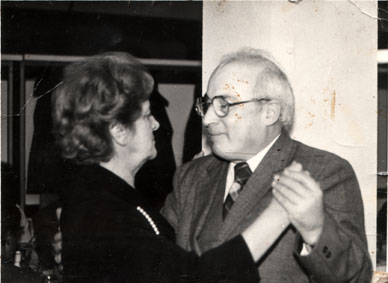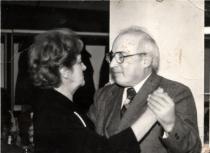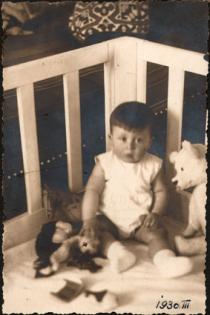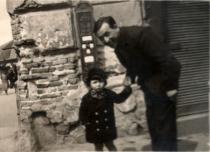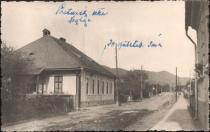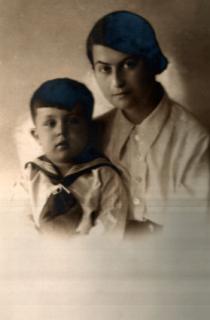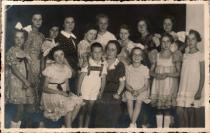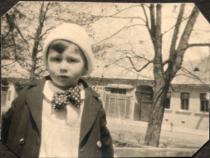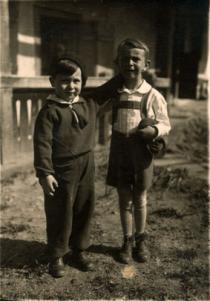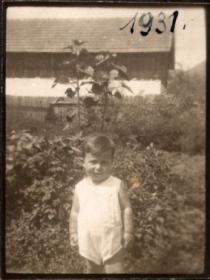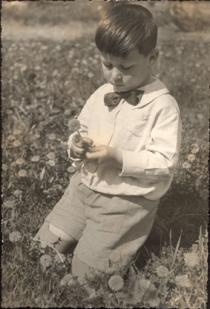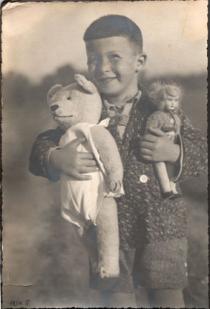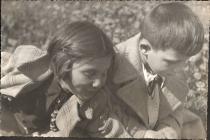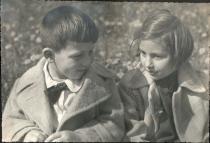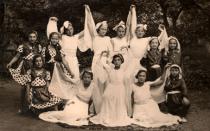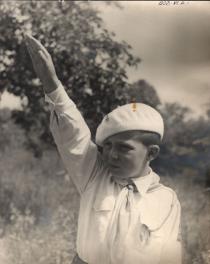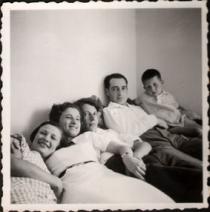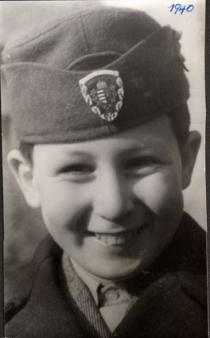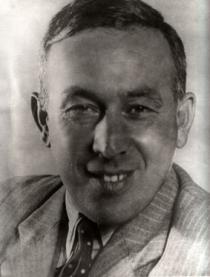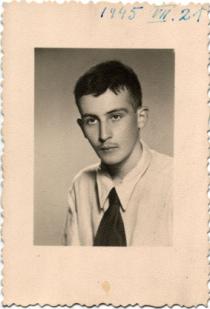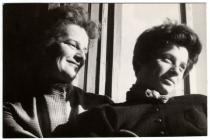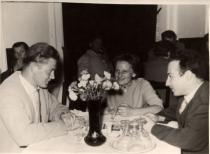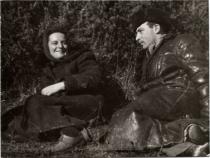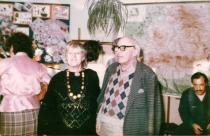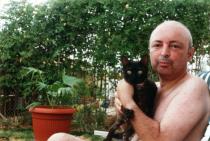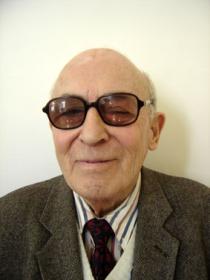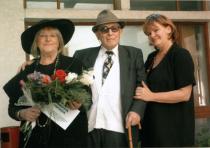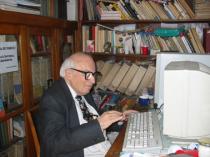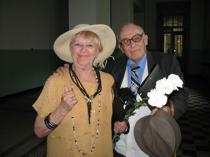On the right is me [Janos Gottlieb], I’m dancing with my wife [Cleopatra Mociutchi].
I don’t remember when and where the photo was taken, I suppose it was taken recently.
Following the events of 1989 my life changed to some extent. It changed in what concerns duality - I didn't have to bother anymore about it.
For the truth is that during the communist era everybody had two faces. I said one thing at home, and other thing outside.
One couldn't speak out their thoughts, only in a very restraint circle. One had to watch out his mouth.
And now I don't have to keep my mouth shut. I will add something very interesting to this.
I had a Jewish student, whose parents I got to know. The father was a watchmaker and a jeweler.
Before World War II he was a very wealthy man - until the war began.
In the 1950s his brother-in-law, who had left for France, came to visit him, and he convinced him to apply for a permit to leave for France.
Once I paid him a visit, and the old man - of course he was much older than me - was pretending he was in a bad mood.
I didn't understand it. I told him: 'Mister Goldenberg, you, who used to be so wealthy, and who has so many difficulties now to make a living, what is keeping you here, why won't you go to France? Why is it such a big deal?' 'I don't want to go, but my wife and children are trying to persuade me to leave.'
'Why don't you want to go?' 'I will tell you why. As a Jew, when I was at my mother's breast, I already learnt what "Haltz maul" is.' - You know what it means, don't you? Hold your tongue. - 'It's not a big deal for me to shut my mouth.
But the joy to see that Romanians have to shut their mouth too, I won't have it in France.' Well, the truth is that being a Jew, I also learnt as a child already to hold my tongue, because I lived in such circumstances.
I wasn't allowed to speak. I knew my father was listening to the London radio station, but I wasn't supposed to know it. And so on.
So I learnt this as a child. And I kept on with this in Iasi too, but I never liked this matter.
The other thing is that now one can travel abroad, and it's not a troublesome thing to send papers. In old times it meant a problem to send papers abroad, I had to ask for I don't know how many certificates that it wasn't a state secret what I was writing.
My problem was not that they might have not given me the permit, but the fact itself that I had to ask for permits. It took me long and so on.
Then they asked you why you were writing in foreign languages. This would mean you were a cosmopolitan.
One is supposed to write in Romanian. But what I have published here, in Romanian, nobody read it abroad.
Yet I managed to send some papers: I sent papers to France, a study was published in Argentina before 1989, so I could send a few papers to different scientific journals.
For example my papers were published by the Contes Rendues in Paris, the Revista de Matematica y Fisica Teoretica in Argentina, the Periodica Mathematica Hungarica in Hungary.
It was difficult to go to conferences. I'm not saying it was impossible, but it was difficult.
For example in 1983 I was invited to a conference in Italy, to a scientific session on gravitation, a conference organized by the International Society on General Relativity and Gravitation.
In 1980 the same session had been organized in Jena, when I could have participated. I hadn't had problems with going to Jena.
Although I didn't tell the police why I was going there, because I should have asked for a permit concerning what and with whom I was going to speak and so on.
In 1980 I applied for a passport to visit Czechoslovakia and East Germany, and they gave me without any problems. In 1983 I was supposed to go to Italy.
So I applied again for a passport saying that I wanted to see these countries - Italy, France, Germany, Austria, Hungary.
But I didn't mention in my application my purpose and that I was going to participate at a scientific session, because in this case I should have asked a separate permit, I should have told them what I had written in my paper I was going to present there…
The truth is that everybody knew at the university where and why I was going.
But everybody pretended not to know it. I applied in due time for a permit, I specified which countries I wished to go to, and in two months I got my passport.
I went to Italy through Yugoslavia, and I came back through France, Germany, Austria and Hungary.
I went by my own car with my wife; it was a wonderful journey.
We visited the concentration camps of Mauthausen and Melk, where I had been. We saw only these two, we didn't go to see the others.
The one in Mauthausen was open for visitors, the Melk camp was very small, the former concentration camp wasn't there anymore, but there is a museum there too.
My wife could see what a concentration camp meant.
I saw the place within the Mauthausen concentration camp, where there had been a quarry, the steps where thousands of people had been killed with stones; in 1983, forty years later the place was still stinking because of the dead.
